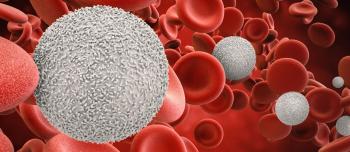Gene Therapy Study Still Succeeding Three Years Later
It has now been three years since a group of patients with severe hemophilia B, or factor IX (FIX) deficiency, in London received a single dose of gene therapy as part of a new clinical trial. Early results of the trial were positive as these patients began to generate FIX levels ranging from 1%-6%. Prior to the study, they produced little to none of the crucial clotting factor protein.
This seemingly modest boost in FIX “expression” is important. The increase in FIX essentially transforms a patient symptomatically, from severe to mild, with the end result a significant, even dramatic, reduction in bleeds. Results described in a new article indicate that the initial breakthrough results have been sustained during the three years since the study began in 2011.
The report, “Long-Term Safety and Efficacy of Factor IX Gene Therapy in Hemophilia B,” was published in the November 20, 2014, issue of The New England Journal of Medicine. The lead author of the update was Andrew Davidoff, MD, St. Jude Children’s Research Hospital in Memphis, TN. Davidoff has collaborated for more than a decade with a strong team of researchers, including coauthor Amit Nathwani, MD, PhD, at the University College London. “I believe that, scientifically, this is ready for prime time,” said Davidoff.
The gene therapy trial employed an adeno-associated virus serotype 8 (AAV8), a small virus that does not cause disease and produces mild immune responses, as a vector (delivery vehicles) to introduce a functioning FIX gene into the liver cells of subjects with severe hemophilia B. The goal of the trial was to trigger viable, long-term FIX protein production through a single administration of the therapy.
Overall, 10 subjects with severe hemophilia B participated in the study, six of whom received high doses of AAV8 and reached average FIX levels of 5.1%. According to investigators, this “resulted in a reduction of more than 90% in both bleeding episodes and the use of prophylactic factor IX concentrate.” Also, no toxic effects were reported.
“I think it’s going to have a big impact. The study showed both safety and efficacy, and the side effects were minimal,” said Timothy Nichols, MD, who heads the Francis Owen Blood Research Laboratory at the University of North Carolina at Chapel Hill. He was not involved in the study. “This is a single shot of medicine given to patients who are treating themselves two or three times a week,” he told Reuters Health over the phone. “Suddenly, they don't have to take the medicine anymore.”
Source: Reuters, November 19, 2014





